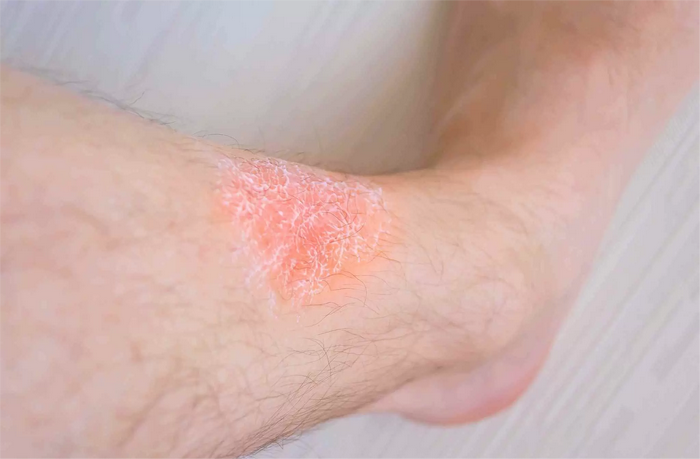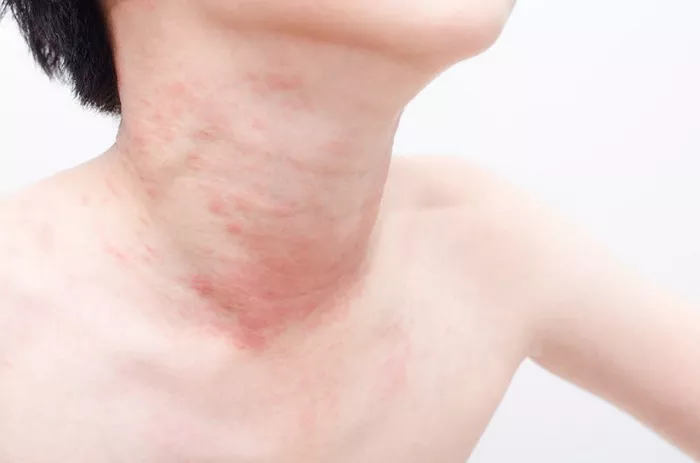Eczema, a chronic skin condition characterized by inflammation, itching, and redness, affects millions of people worldwide. While various treatments are available, ranging from topical creams to oral medications, many individuals seek natural remedies to alleviate their symptoms. One such remedy gaining popularity is fresh aloe vera. But is fresh aloe vera truly effective for managing eczema?
Aloe vera, a succulent plant with thick, fleshy leaves, has been used for centuries for its medicinal properties. Its gel-like substance is rich in vitamins, minerals, enzymes, and amino acids, making it a popular ingredient in skincare products. Advocates of aloe vera for eczema claim that its anti-inflammatory, antimicrobial, and moisturizing properties can provide relief from eczema symptoms. However, before delving into the effectiveness of fresh aloe vera for eczema, it’s essential to understand the nature of the condition itself.
Understanding Eczema
Eczema, also known as atopic dermatitis, is a chronic skin disorder characterized by inflammation, itching, and dryness. It often presents as red, itchy patches on the skin, which can become cracked, swollen, and even infected with scratching. Eczema is believed to result from a combination of genetic and environmental factors, including immune system dysfunction and skin barrier impairment.
Traditional treatments for eczema aim to reduce inflammation, relieve itching, and moisturize the skin to prevent flare-ups. However, these treatments may not be effective for everyone, and some individuals may seek alternative remedies like aloe vera to manage their symptoms.
The Benefits of Aloe Vera for Eczema
Fresh aloe vera is renowned for its numerous health benefits, including its potential to alleviate eczema symptoms. Several key properties of aloe vera contribute to its effectiveness in managing eczema:
1. Anti-inflammatory:
Aloe vera contains compounds such as acemannan and anthraquinones, which have been shown to exhibit anti-inflammatory properties. By reducing inflammation in the skin, aloe vera may help alleviate redness, swelling, and discomfort associated with eczema flare-ups.
2. Moisturizing:
One of the hallmark features of eczema is dry, irritated skin. Aloe vera gel has excellent moisturizing properties, helping to hydrate the skin and improve its barrier function. By keeping the skin hydrated, aloe vera may help prevent eczema flare-ups and promote healing of existing lesions.
3. Antimicrobial:
Eczema-prone skin is often more susceptible to bacterial and fungal infections due to its compromised barrier function. Aloe vera contains compounds with antimicrobial properties, such as aloin and emodin, which may help prevent infections and promote wound healing in eczematous skin.
4. Anti-itch:
The soothing, cooling sensation of aloe vera gel can provide immediate relief from itching and discomfort associated with eczema. By calming the itch-scratch cycle, aloe vera may help prevent further skin damage and promote healing.
Scientific Evidence Supporting Aloe Vera for Eczema
While anecdotal evidence and traditional use support the efficacy of aloe vera for eczema, scientific research on its effectiveness is somewhat limited but promising.
1. Aloe Vera and Inflammation:
Several studies have investigated the anti-inflammatory effects of aloe vera gel on various skin conditions, including eczema. A study published in the “Iranian Journal of Medical Sciences” found that topical application of aloe vera gel significantly reduced inflammation and improved symptoms in patients with mild to moderate eczema. The researchers attributed these effects to the presence of anti-inflammatory compounds in aloe vera, such as acemannan and salicylic acid.
2. Aloe Vera and Moisturization:
The moisturizing properties of aloe vera gel have also been well-documented. A study published in the “Journal of Dermatological Treatment” evaluated the efficacy of aloe vera gel versus a placebo in treating patients with mild to moderate eczema. The researchers found that aloe vera gel significantly improved skin hydration and barrier function compared to the placebo, suggesting its potential as a moisturizing agent for eczema-prone skin.
3. Aloe Vera and Antimicrobial Activity:
Several studies have demonstrated the antimicrobial activity of aloe vera against various bacteria and fungi. A study published in “Phytotherapy Research” investigated the antimicrobial effects of aloe vera gel against common skin pathogens, including Staphylococcus aureus and Candida albicans. The researchers found that aloe vera gel exhibited significant inhibitory activity against these pathogens, suggesting its potential in preventing infections in eczematous skin.
4. Aloe Vera and Itch Relief:
The soothing properties of aloe vera gel have been shown to provide relief from itching and irritation in various skin conditions, including eczema. A study published in the “Journal of Clinical and Aesthetic Dermatology” evaluated the efficacy of aloe vera gel in relieving itching in patients with eczema. The researchers found that topical application of aloe vera gel significantly reduced itch intensity and improved overall skin comfort, highlighting its potential as an anti-itch remedy for eczema.
How to Use Aloe Vera for Eczema
To reap the potential benefits of aloe vera for eczema, it’s essential to use it properly:
1. Choose fresh aloe vera: Opt for fresh aloe vera gel extracted directly from the leaves of the plant, as it contains the highest concentration of active compounds.
2. Perform a patch test: Before applying aloe vera gel to large areas of eczematous skin, perform a patch test to check for any adverse reactions or sensitivities.
3. Apply gently: Apply a thin layer of aloe vera gel to the affected areas of the skin and gently massage until absorbed. Repeat several times a day or as needed for symptom relief.
4. Combine with other treatments: Aloe vera can complement traditional eczema treatments, such as emollients and topical steroids. Consult with a healthcare professional to determine the best treatment plan for your individual needs.
5. Monitor for improvement: Keep track of your eczema symptoms and monitor how your skin responds to aloe vera treatment. Discontinue use if any adverse reactions occur or if symptoms worsen.
Conclusion
Fresh aloe vera offers a natural and potentially effective remedy for managing eczema symptoms. Its anti-inflammatory, moisturizing, antimicrobial, and anti-itch properties make it a promising option for individuals seeking alternative treatments for eczema. While scientific research on the efficacy of aloe vera for eczema is ongoing, existing evidence suggests that it can provide relief and improve the overall health of eczematous skin. However, as with any natural remedy, it’s essential to use aloe vera properly and consult with a healthcare professional for personalized treatment recommendations. With proper care and attention, fresh aloe vera may offer much-needed relief for those struggling with eczema.

























